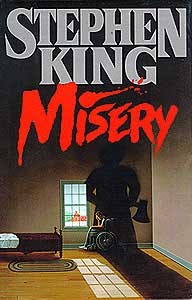4 Obstacles Keeping You from Finishing Your Manuscript
Disclaimer – Before I can be slapped with the charge of hypocrisy, let me be the first to say that I have succumbed to all four of the manuscript impediments listed below.
Identifying these 4 obstacles can help you scramble out of writing pitfalls, rather than stumbling around inside them and wondering where you are.”
1. Video Games / Facebook / Twitter
This may seem too specific, but console games, especially role playing games, are a real problem for me. Why? Because I love them too much. They are immersive, they have propulsive narratives, they are vacations from reality, and they are exciting. That’s not what makes them particularly problematic, though. All those things could also be said of a good book, whether you’re reading it or writing it. What makes RPG video games particularly dangerous for writers is that they are designed with another specific goal in mind: to eat up as much of your time as possible.
 A group of intelligent, talented people go to work each day trying to create games that will satisfy gamers and critics, and they know that the highest praise for games comes in the form of descriptions of how long people played them…or, better yet, replayed them.
A group of intelligent, talented people go to work each day trying to create games that will satisfy gamers and critics, and they know that the highest praise for games comes in the form of descriptions of how long people played them…or, better yet, replayed them.
Conversely, if a critic says she beat the thing in a few hours, that’s a nail in its coffin. Who wants to spend sixty bucks on a few hours’ entertainment when the same sixty can get you a week’s or a month’s? To non-gamers, this seems counter intuitive. Wouldn’t you want something that provided the pleasure of victory quickly? No, because watching credits role is not as much fun as killing hordes of the undead.
Consequently, these are intentional time-sucks. Be aware of that going in; if you have a manuscript to finish, save your sixty bucks until the book is done. By then, the game will be on sale for $15. And the console will be out of date. And maybe you’ll be more excited about your next book idea than an old video game.
Non-gamers might be thinking, “Well, I’ve already dodged that bullet.”
True, but be honest with yourself. You might have avoided Dragon Age or BioShock, but how long did you spend on Angry Birds or Candy Crush? Dodged those, too? Well, just as the video game industry thrives on “extended gameplay,” the people behind Facebook and Twitter know that the longer you linger on their sites, the more ads you see. Their sites are designing their keep your eyeballs locked on their pages for a long as possible, too.
So, identify your game of choice and go into it knowing that we, as writers, have an added level of difficulty.
After “Easy,” “Medium,” “Difficult,” and “Nightmare,” there’s a secret level called “Writer” for the person who has to look that next zombie in its remaining eye (or that clickbait article right in it’s “3/28 Next” button) and refuse to go on until there are a few tens-of-thousand more words added to the manuscript.
2. Tunnel Vision
You’re forty-five pages in. You’ve hit a snag. You have a general idea of where you’d like your protagonist to end up on page 153, and you’re excited to write that part, but you’re just not sure what to have her do in order to get there. What to do?
There are about a million books on Amazon that will offer to give you all the secrets to writing the next hit novel/play/screenplay, but most of us do things that wouldn’t appear in any of them.
Those books won’t tell you to check the wordcount of the whole document, but you’ve done that, haven’t you? They probably won’t say to go get the mail or stare at the ceiling or pick your nose, but you’ve done one of those things, I’m guessing. They almost certainly won’t tell you to stop writing and go read a book about writing that you bought on Amazon.
 We’re all a bit obsessive in our own ways. If not, we wouldn’t devote so much energy to the often-Sisyphean task of writing. But, in that moment, it’s worth remembering that we are not obligated to write page 46 today. If you’re excited to write the part of the story that may end up being on page 153, write that. Then write the part that is going to be absolute dynamite on page 274. Then write the last page. Then shuffle them until you can’t remember how they were going to make sense. Then figure out the most fun, most inventive new way to tie those good parts together until you have a manuscript that is composed entirely of parts you enjoyed writing.
We’re all a bit obsessive in our own ways. If not, we wouldn’t devote so much energy to the often-Sisyphean task of writing. But, in that moment, it’s worth remembering that we are not obligated to write page 46 today. If you’re excited to write the part of the story that may end up being on page 153, write that. Then write the part that is going to be absolute dynamite on page 274. Then write the last page. Then shuffle them until you can’t remember how they were going to make sense. Then figure out the most fun, most inventive new way to tie those good parts together until you have a manuscript that is composed entirely of parts you enjoyed writing.
Escape the tunnel and create an amazing mountain.
3. Excuses
Some people will tell you that excuses are like a specific anatomical region because every person has one. That’s patently false. If we had as many orifices as we have excuses, most of us would be sponges. Writers have more than most people; making up stories is our business, and we can easily practice that on ourselves, like a failing drug dealer getting high on his own supply.

Stephen King’s novel Misery is a book about a novelist captured by a deranged fan who tortures him until he completes a book.
For most readers, Stephen King’s Misery is a book about the horror that can be unleashed by a fan’s excessive zeal. For writers (and, if I’m reading it, for King himself), it’s about all the forces, internal and external, that stand between a writer and a completed manuscript.
You might not be trying to overcome the past trauma of being held captive and tortured by an obsessive fan who was also a serial killer, but you probably have a day job, and that can be almost as lethal.
Plus, you owe some of your time to family and friends. (That’s not sarcasm. If you’re not a hermit, you have an obligation to the people in your life.) And there’s that TV show everyone has been talking about. And you know you can’t be a good writer if you never read; how long could it really take to read the A Song of Ice and Fire series? And the lawn does need mowing, and the house needs painting, and you deserve some time to just chill, and…
Most of the stories we tell ourselves about why we can’t work on our novels are rooted in the truth. As writers, we know our stories should be believable, and when we fool ourselves, we employ the same principle of believability. When Polonius tells Laertes, “To thine own self be true,” he’s not only talking about honesty. He’s talking about a kind of selfishness. This is in the context of advice to his son about how to be successful, after all. If you want to achieve your goal of finishing that manuscript, be honest with yourself about just how selfish you can afford to be.
Some other elements of your life will have to come first. Don’t feel guilty about that. Beyond these real needs, some other, less necessary things might simply be more important to you than finishing your manuscript. There’s no shame in that. But distinguish between excuses and priorities so you can satisfy the priorities and overcome the excuses.
4. Marketing
Maybe you are such a successful writer that your Big 5 publishing company has to hire a lawyer to keep your as-of-yet unpublished manuscript in a locked briefcase handcuffed to his wrist on a transAtlantic flight, even when he goes to the bathroom, for fear that someone will steal it. If so, I am honored that you are reading this, Ms. Rowling. You earned it.
If you are anyone other than J. K. Rowling, you need to worry about how to get your work into the hands of readers. It will take up some of your time. If you’ve chosen the traditional publishing route, you’ll need to write query letters, research agents, and try to get through the gatekeepers. If you’re successful, you’ll then need to do the exact same things as the indie authors who skipped that, because publishing companies do not take care of all the marketing the way they once did.

- You’ll need a “web presence.”
- You’ll need to fill up Facebook and Twitter and your blog with “content” (i.e. More writing that keeps you from the manuscript you need to be writing).
- You will need to schedule signings.
- If you’re lucky, you’ll need to respond to fan mail.
It’s very easy to allow all this to prevent you from writing the next book. None of these tasks are bad. You’re working on building your writing career, right?
But the marketing can’t be the business.
According to the U.S. Small Business Administration, companies should spend 7 to 8 percent of gross revenue on marketing and advertising. (To be specific, that’s their advice for those of us doing less than $5 million a year in sales, which, as of today …wait, let me check… …yep, that still includes me). If you justify your Facebook and Twitter time as marketing, that’s fine, but the time you spend there which isn’t your personal, fun time should be 7% of your writing time. Otherwise, you are investing too much in marketing the last product and not spending enough creating value for your sole shareholder: You.
How many pieces of my own advice did I violate while writing this list? How many of these pitfalls did I dive into head first?
Well, at one point, I fixated on a single quote I thought I’d use but couldn’t exactly remember and went into the Google rabbit hole looking for it, to no avail. Tunnel Vision. Check. Then I got bogged down in extra work from my other jobs, some of which had to be done (priorities) and some of which just felt more fun at the time. Excuses. Check. And, let’s be honest, this list won’t make it into my next novel. Marketing. Check. Check. In an effort to avoid writing out of guilt (excuses), I spent some time pretending to be a warrior more concerned with slaying digital dragons than finishing my next manuscript. Video games. Check and mate! You could choose to dismiss this whole list as the product of a total hypocrite. I prefer to think of it as the voice of the utmost authority.
…because I will finish the next manuscript, obstacles be damned.
